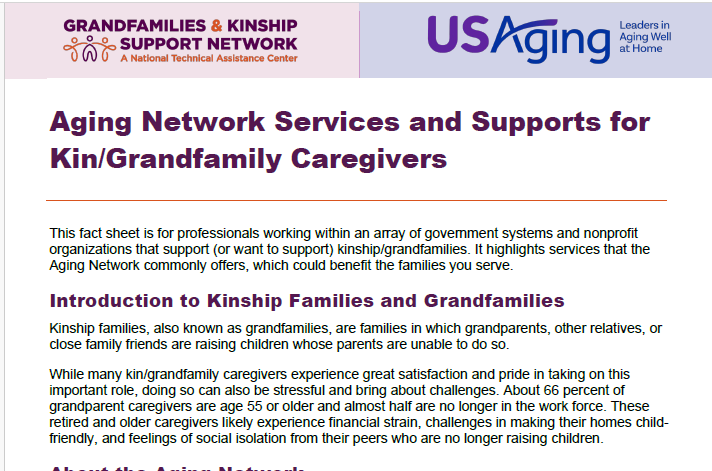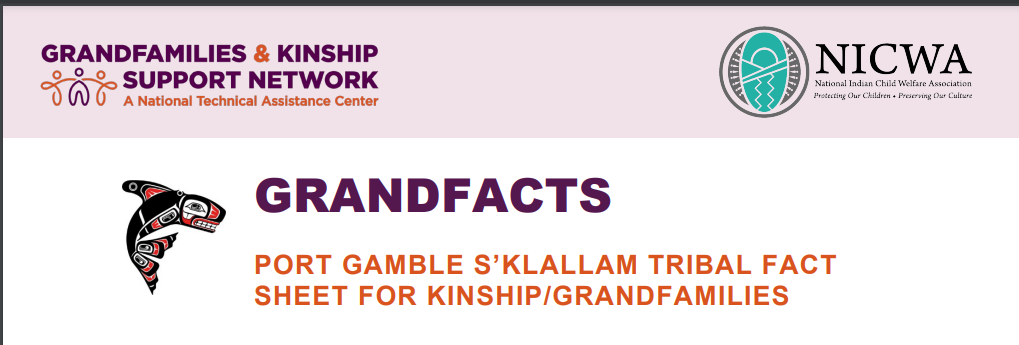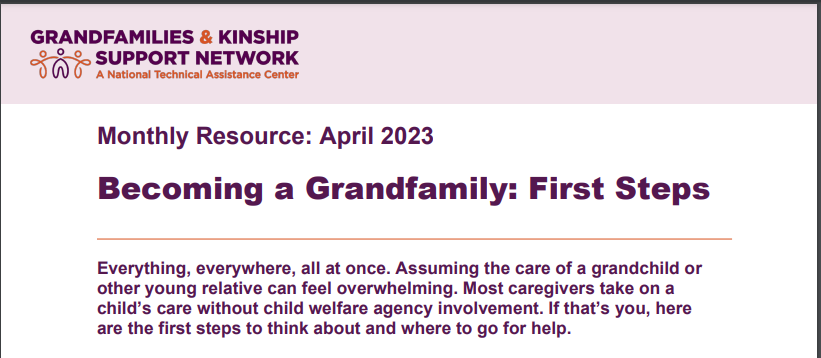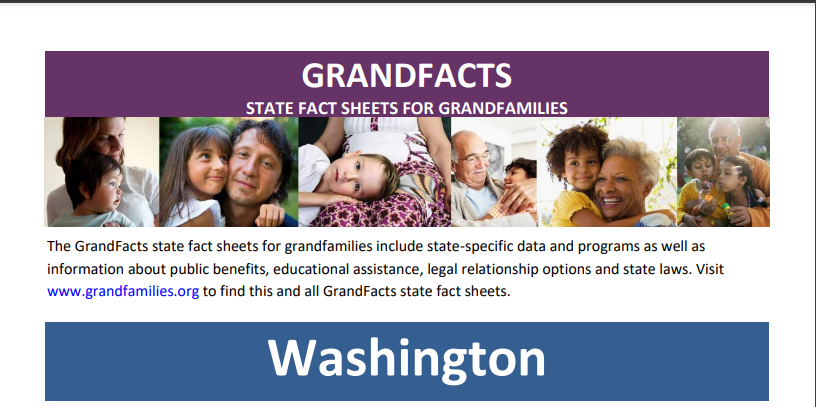Populations
American Indian/Alaska Native
Lifespan Respite WA is working to increase respite options for American Indian and Alaskan Native caregivers with input from the Tribes themselves as they have the knowledge and awareness of how to meet this need. The Lifespan Respite WA Voucher Program is open to all eligible American Indian and Alaskan Native caregivers. See also: Finding Respite in Washington State.
Relatives raising the child(ren) of a family member (Kinship Families)
Kinship families are families in which children live with and are being raised by grandparents, other extended family members, or other adults with whom they have a close family-like relationship such as close family friends. Many kinship caregivers don’t necessarily think of themselves that way–it’s natural to step in and raise children when the parents can’t. Even though most of the challenges that come with raising children are the same for a kinship family, there is an important difference. Kinship caregivers do not have automatic legal rights and responsibilities for the children. Raising children when they are not the child’s parent was not necessarily planned or expected. It’s often related to a family crisis, and the child welfare system is not always involved.
Kinship caregivers can often use help with all of the practical issues surrounding a suddenly larger family: large enough housing, paying for the extra food, ensuring medical care, and registering children at a different school. Legal issues may come up–powers of attorney to get things done, custody, guardianship of the children, parental rights and visitation.
There is help available! Kinship caregivers can get help with:
- Health insurance and health care
- Financial assistance (including food)
- Other public benefits
- Contact information for your regional Kinship and Tribal Navigators (people who can direct you to resources) WA State AAA and Tribal Kinship Navigator Contacts (as of May 2023)
- Legal assistance
- Tax credits
- Schooling–especially if the child or children are now in a new school district
- Support groups where other kinship caregivers share concerns, experiences, and ideas

Services and Supports for Kinship Families (Financial, Housing, In-Home, Transportation, & More)
Here are three FactSheets you can read online, download, and print, courtesy of The Grandfamilies and Kinship Support Network:
MORE HELP:
If the child or children have a disability or special health care need:
PAVE Family Voices of Washington Get Help (works for both programs)
If the child may be experiencing a developmental delay, or you have concerns about that:
“Developmental Screening (Birth to Three and Medically needed developmental screening)”
If the child’s special education needs are not being met: Get Help
If you need a break (respite): Lifespan Respite WA
Military and Veteran
Exceptional Family Member Program: Provides all four military branches with care and respite support for families with a member who has a special need or disability. When military respite is not available, military families should know they are also eligible to apply for civilian respite services while living in Washington State. See also: Finding Respite in Washington State.
Coast Guard Special Needs Program: provides Coast Guard family members who have special needs or a disability with care and support. Coast Guard families may also apply to civilian sources of respite care in Washington State. See also: Finding Respite in Washington State.
Your branch of service may have branch-specific resources for respite. Contact the Exceptional Family Member Family Support Office at your nearest installation or Coast Guard Special Needs Program by phone or email.
The Hope Fund: Critical Financial Assistance for Military and Veteran Caregivers
Not strictly for respite, the Hope Fund is for: “financial relief to all eras of military and veteran caregivers through grants that aim to put military families on the path to financial wellness. These grants provide high-impact financial assistance to prevent or address a significant crisis or to improve the quality of life of the caregiver family. This financial relief fills the gaps that other programs may not cover, such as medical bills, natural disaster assistance, transportation for appointments, or loss of income. Caregivers who would benefit from assistance are strongly encouraged to apply. Please do not suffer through hardship when help is available.” -from Hidden Heroes/Hope Fund
Other programs which help provide respite for military and veteran families (listed on the Hidden Heroes website)
Veterans Affairs offers two different programs which support family members caring for a veteran. Both offer training and a wide range of supports such as peer mentor support (a caregiver who has ‘been there’ and can help you navigate caregiving), one-on-one or group coaching sessions, resource referral, and respite care.
Program of General Caregiver Support Services (PGCSS)
“PGCSS is the core of VA’s Caregiver Support Program (CSP). The program provides peer support mentoring, skills training, coaching, telephone support, online programs, and referrals to available resources to caregivers of Veterans. The Veteran must be enrolled in Department of Veterans Affairs (VA) health care and be receiving assistance from a caregiver in order for the caregiver to participate.”
Program of Comprehensive Assistance for Family Caregivers (PCAFC)
“PCAFC offers enhanced clinical support and services for caregivers of eligible Veterans who have a serious injury (or illness) and require in-person personal care services among other requirements.
To enroll, please reach out to the facility Caregiver Support Team or request a referral from the Veteran’s provider”
-from US Department of Veterans Affairs VA Caregiver Program
![Lifespan Respite Washington [logo]](https://www.lifespanrespitewa.org/wp-content/uploads/2018/08/lifepsanrespite-logo2.png)


